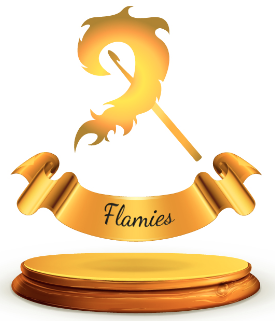Who taught you to crochet? How long have you been doing it?
My Grandmother taught me to crochet in 1999 and [I]
learned to knit in 2004 from a dear friend. The moment [I] picked up the hook and needles, [I] knew that [I] had found [my] home, and HAD to be a part of this industry. In 2006, [I] said “Adios!” to the insurance world, and did just that.
Why do you crochet?
I used to crochet only for the joy of it but I crochet now for my job and for the joy of it! Best of both worlds. I am truly blessed.
Crochet Favorites
I have many favorites: My favorite hook is a Boye hook but more specifically I love my Addi Colour hooks. My favorite crochet designer is Robyn Chachula. My favorite crochet book...I don't have just one...but I do love my Japanese Stitch Dictionaries. My favorite yarn is Bijou Basin Ranch, Lhasa Wilderness (75% yak, 25% bamboo). And I am not just saying that because I am their creative director. Of all the yarns I use/have used it is still my favorite.
What are you working on right now?
I am working on designs inspired by the Outlander book series and I am working on a crochet book for Interweave to be published Fall 2015.
A few finished objects...
Wildberry Wrap: WHY SINGLE CROCHET ENTRELAC? It is no secret that I am a fan of knitted entrelac, I actually wrote a book about it (I Can’t Believe I’m Entrelac Knitting, Leisure Arts 2014). But I had never seen crochet entrelac made without a Tunisian crochet hook. I knew there had to be a way to achieve the same entrelac look with a normal crochet hook and any other stitch.
It
became my mission to figure out how to do this. In my research, I came
across one pattern that used single crochet entrelac to make a scarf.
Well, I was certain I could improve on the pattern and create my own
design. Hence, the beautiful wrap pattern you have here.
In
this pattern you will find wonderfully written instructions that
include placement instructions for stitch markers that act as visual
cues of where to put your hook AND FULL CHARTS included
at the end of the pattern depicting the different tiers that create
entrelac. There will be no excuse at all for you not to understand this
amazing technique once you are finished with this pattern!
Garden Party Sweater: Soft cotton and classic shaping form a posh design. The simple double crochet stitch pattern produces an artistic lace for a polished feel, while the oversized scallops add a touch of whimsy for a charming finish.
Goldenrod: I wanted to design a piece that had easy construction and a stitch pattern that was interesting lace. Cardigans are a staple in my closet and living in CO it can go from 80 degrees to 50 degrees in a matter of hours in the fall so it is always nice to have something that can be thrown on over anything. The Goldenrod fits the bill.
It
is made in one piece beginning at the back, increasing for the sleeves
is as easy as adding ch sts at the beginning and end of a row where
indicated in pattern. The pattern st could be a little tricky if the
crocheter doesn’t understand that on the first repeat row of the pattern
st it is necessary to ch X number of sts then work into those chain sts
before you are back to the original piece. The edging incorporates post
sts to give texture around some solidity to such an open lace pattern
around the body. Plus, the top chain draws the eye linear along the
center of the body which is very flattering :-)
When
I design, I try to make all my sweaters available in several sizes and
flattering for all figures. This one in particular comes in several
larger sizes and would fit just about anybody. Also, it is very easy to
to customize and make longer if you want. It is as easy as doing one or
two more repeats before adding chs for the sleeves (making sure to still
end on the appropriate row number) then making sure that the same
number of rows are added to the front of the sweater as well.
Amazing! Marly is so wonderfully involved in so many facets of the yarn, crochet, and knit industries. What a well-rounded professional! You can catch more of her on her podcast, YouTube channel, and website. Thanks for sharing your work with us today, Marly!












































